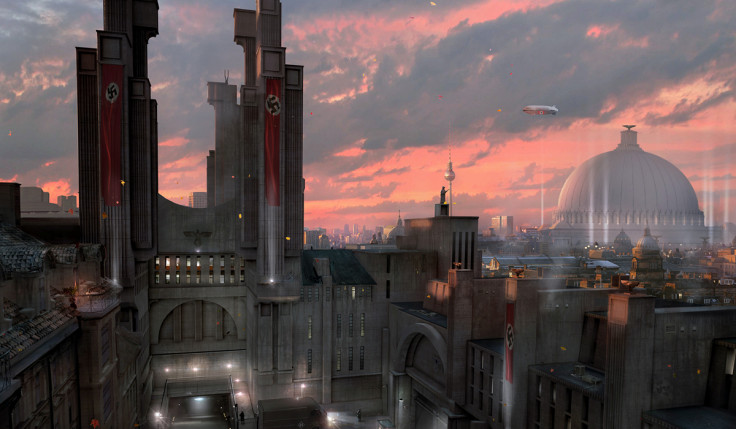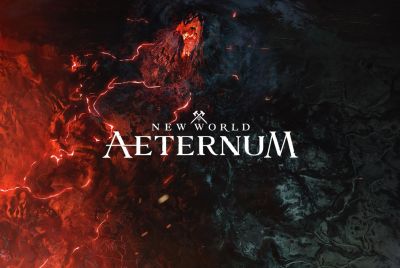Germany's Wolfenstein Nazi Ban is Totally Correct - Because Holocaust wasn't a Game

There's a street, in the Aldstadt section of Nuremberg, that is lined with concrete pillars, all bearing an inscription. It's a formal apology, from Germany to the rest of the world, for the atrocities committed by the Nazi party in World War 2. Each pillar has the apology embossed in a different language – English, French, Polish.
The memorial is in the centre of Nuremberg. It is not something that Germany is ashamed of.
Other cities, both in Bavaria and the north of Germany, contain similar monuments. A small street in Munich, called Viscardigasse, is paved with gold. It's in memory of Jewish people and other Nazi detractors who used the alleyway as a way of walking around, rather than through, the Königsplatz, which at the time served as a National Socialist parade ground. In Berlin, the Reichstag, Germany's parliament building, still has bullet holes in the walls from Russian machine-guns. Nearby is the Holocaust Memorial, which the city built at a cost of 25 million Euros.
Germany is not afraid to confront its war history. The country tastefully, bravely, remembers what happened.
A recent news story about the latest Wolfenstein videogame being banned from mentioning the National Socialist party may have some believing that Germany today is afraid of its past. By forcing the game's developers, Bethesda, to remove any use of the word Nazi, or any Nazi imagery from its Second World War game, Germany puts itself in danger of looking ashamed, reluctant, quietly guilty.
The fact, however, is that rather than ignore or erase memories of the Second World War, Germany, evidently, is making every effort to honour them. If the country wishes to ban Wolfenstein from mentioning the Nazis, it's not because it is afraid that people will suddenly remember the country a certain way, and develop animosity towards German people. It's because it wants to preserve the history of what the National Socialists did solemnly, with dignity, with art.
The ban isn't an affront to free speech. It's the German government, quite rightly, recognising that videogames, particularly Wolfenstein, aren't equipped to handle and depict this subject matter with the sensitivity it deserves. Wolfenstein sees players killing German soldiers using a laser gun. The plot involves a kind of Rob Zombie-type Third Reich, which creates "the world's biggest atom bomb" and drops it on New York City. Real history, this is not. And frankly, if Wolfenstein is going to re-appropriate the still recent and very horrifying events of the Second World War into something so ham-fisted, it seems reasonable that it be banned from directly referencing both Nazis and concentration camps. These aren't topics that you can play around with and amplify. Some things aren't suitable for being turned into toys.
There's a broader issue at stake here. As much as games, like any creative media, have a right to broach serious and delicate issues, they can rarely be trusted to do so. Look at Far Cry 3. It's been described by its writer as a treatise on colonial culture, white entitlement and present day racism, but the game inevitably devolves into shooting, car chases and explosions.
If the recent controversy over the box art of Far Cry 3's sequel, Far Cry 4, is fuelled by anything, it's audiences' natural distrust of videogame writers. Again, the developers may claim that the imagery is deliberately provocative, and that the game will unpack the suggested issues with care, but given videogames' track record of foolishness, childishness, racism, sexism and homophobia, that statement is hard to believe. Videogame makers of course have a right to free expression but rarely do they exercise it well.
And that's likely why Germany wants to censor Wolfenstein. All around the country, residents and local governments have invested money and care into preserving the memory of World War 2 with grace. It's a subject taken extremely seriously: despite concerns it could become a pilgrimage site for neo-fascists, the podium Hitler used at the Nuremberg rallies has been left standing, since the German government considers it a vital reminder of the country's chequered past.
Germany isn't afraid of Wolfenstein; it's concerned, and rightfully so. Likewise, games like Far Cry don't upset people because they dare to mention topics like racism. It's because, like most videogames, they address these matter without tact, understanding or grace.
© Copyright IBTimes 2025. All rights reserved.




















